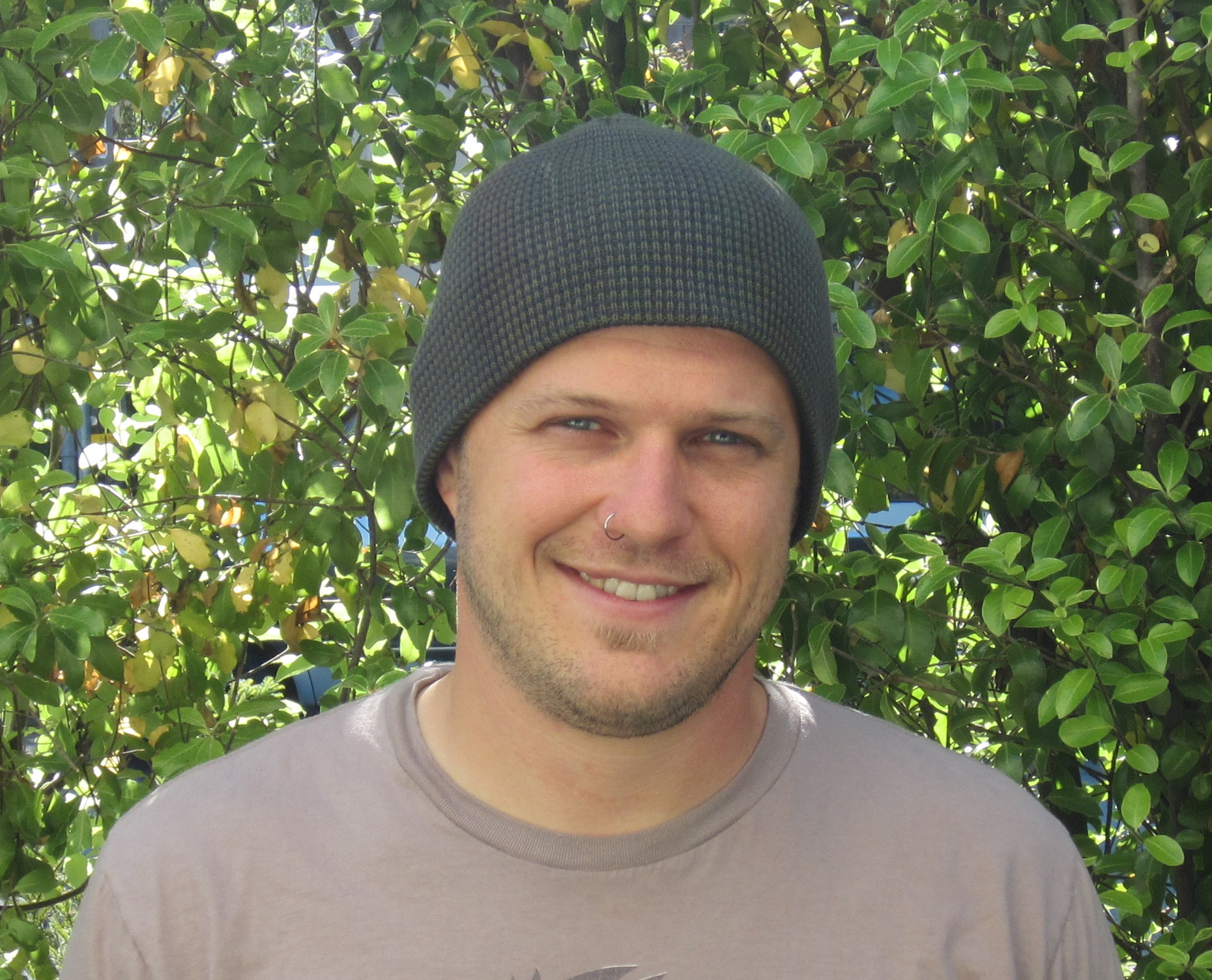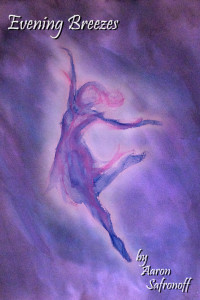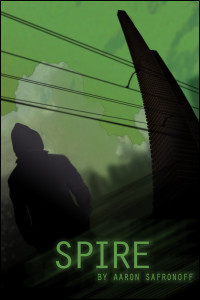Interview – Aaron Safronoff, author of Spire
Self-Publisher’s Showcase: Today in The Showcase Lounge, author of Science-Fiction novels Spire and Fallen Spire and poetic story Evening Breezes, Aaron Safronoff. Thanks for joining us Aaron.
Aaron Safronoff: My pleasure, Paul. I’m excited to be here.
SPS: Your first work, Evening Breezes, is a poetic story of someone lost in grief. Where did the inspiration come from to write something that you admit at times is very vivid and abstract, particularly the imagery.
AS: Right. Who needs warm up questions? How do I write? Top to bottom, left to right, Tylenol for headaches, Midol for cramps. Everyone knows that.
Seriously, I was an emotionally unstable, confused young adult, probably not that different from everyone else. My best friend was suicidal, but we didn’t talk about it. I’m not sure we knew how. I mean, it wasn’t as though he was sad or brooding, or looking for attention. There was just this palpable disconnected feeling that we shared that neither of us knew how to express or if it mattered. Back then, I thought I was writing Evening Breezes for him, to express how our lives would be different without each other. The story is abstract because I needed it to read both ways… the main characters are reflections of one another. The images are potent—I hope—because I completely immersed myself and pulled elements from my life to create them as honestly as I could.
Before we go on I need to say that I was scared to edit Evening Breezes as an adult, afraid that I would dull the edge of it. But something amazing happened when I edited it this year for publication: I saw the story from a new perspective, from a new vulnerability, and I found myself in it again. I like the ending better now.
SPS: The events of 2001 [the loss of your brother] and the following ten years obviously had a huge effect on you. Did you ever feel that you would exit the other side and be successfully writing again?
AS: I definitely didn’t think I’d ever be writing again. I wasn’t able to take part, you know, really engage anything meaningfully. I was living sure, doing the usual life things, but none of it seemed to matter. I kept rationalizing it all away, convincing myself that life becomes less interesting as you get older. Now, I think that I simply couldn’t admit that Brock was gone, and I was carrying that with me all the time.
It was when I started writing again, a little here and there, that I found myself crawling up and out of it. I have to say though, that it wasn’t until I started celebrating Brock’s life and quit mourning his death that I fully woke up. I’m not sure that would have happened if I didn’t see how my ex-wife and her family handled the loss of her mother early last year. We were stricken with terrible sadness; it was a freak, tragic accident that took her. But Crete’s family showed me how to hold the joy of knowing her above the grief of losing her. It was amazing. They inspired me to remember my brother instead of remembering the moment he left. Thank you, mom.
SPS: Your Science-Fiction novels Spire and Fallen Spire are far removed from Poetry. Is this the genre you feel more centred on now and do you ever see yourself returning to Poetry?
AS: Yes, Spire and Fallen Spire, are definitely a departure from poetry. I like to think though, that many of the rhythms in my writing come from exploring poetry and music, and that those elements will always be present in my style. I absolutely believe that I’ll stay in science fiction and fantasy. I have to have some trippy and fantastic elements in my stories. I doubt I’ll return to Poetry, though I’m not averse to it. I just think that as I continue to find my voice the writing I want to do most is prose.
SPS: Spire was completed over quite an extended period of time. Was there ever a time that you thought of abandoning the novel and how rewarding was it to complete it and finally get it out there?
AS: Yeah, it was a long time. I didn’t ever really consider abandoning it, but I also didn’t spend much time thinking concretely about whether or not it would ever be finished. It was the story that I wanted to write most, so whenever I wrote, that was it. You know that point when you’re reading a novel and you have to keep going to see how it ends? Well, I hit that point while writing Spire, and I had to finish it! How was it going to end? No one else could answer that but me!
Definitely a great feeling to have it done, but it was also all-encompassingly strange. All the work, all the time, all the effort was a blur. Also, feedback takes a while when you’re asking people to read a novel, so upon completion everything was quiet for a while including the voices in my head. As reviews eventually trickled in, I started to grasp better what I’d accomplished. I still don’t quite understand it, but I know I like it.
SPS: How pleasing was it to be recognised with a Discovery Award for Science-Fiction for Spire?
AS: Damn. I think I started by quietly walking around the office. I told one friend after another, louder each time, that Spire had won. I think I started dancing around maniacally screaming, “YESSSSSSSS!” to no one in particular by the end of it. Something like that. It was really amazing. I’d like to do that again, pardon me… [Dances]. “Yesssssssss!” Like that. Yeah, I liked it.
SPS: Was it always the aim to have a sequel or was the plan initially to produce a stand-alone work? Is there still more of Joshua’s story to tell?
AS: The plan was to have a stand-alone work, but it was supposed to include Fallen Spire. What actually happened was that I found that I needed to stop changing the first half, and publishing it world force me to quit monkeying with it. I’m still disappointed in myself for over-editing a couple of the chapters. There is definitely more for Joshua, Eve, Ezechial, and the rest, but for now my interests are elsewhere.
SPS: How useful do you find resources such as Self-Publisher’s Showcase in spreading the word about your work?
AS: Extremely useful. Self-Publisher’s Showcase, Goodreads, and indieReader have been enormously helpful to me in finding readers outside of my immediate social circle. I want to share my stories… that’s why I wrote them down! Self-promotion is great, but a bit nebulous to get started and maintain. Getting together with other authors on websites like this one helps the readers find new books, and that’s what matters: making it easier for the audience to find what they want, and sometimes, be surprised by what they find. (And sometimes, I hope that’s me. Haha.)
SPS: How easy do you find the process of sitting down to write? Are there any tips you would give to any aspiring writers out there?
AS: I don’t know how to gauge the ease of it. My process involves a variety of methods, and I find that I get better at knowing what I need the more I try. So, I guess my advice is that if you want to write, but you’re having trouble, change something. Different music, no music, background noise, silence, brainstorming, outlines, stream of consciousness… just put some words down. Don’t judge them and dismiss them before they’ve been written—plenty of time for that in editing.
SPS: What can we expect next from the pen of Aaron Safronoff? And,can you tell us a little more about Clay?
AS: Clay is the project I’m most excited about right now, and it will definitely be the next novel I publish. There will be other short stories along the way too because I’ve always got something else cooking. What more can I tell you about Clay? In Cota, memories are cast in clay. Some people display them proudly, others try to sweep them away… and a woman named Veyla is stealing them.
SPS: Is there anyone else who you would like to take the opportunity to bring to our attention, someone that maybe our readers are not currently aware of?
AS: I imagine that everyone who’s into indie authors has heard of Hugh Howey by now, but his story Wool really captured my attention. Read Nameless Ridge, too. He’s good. Other than that, how about some music that helps me write? Check out Matt Danuser. I like to call his style Headphone Jai alai, but I don’t know if he knows that. Oh, and in the comic world, John Layman and his series, Chew. Fantastic stuff.
SPS: Thank you once again for chatting to us today Aaron. Good luck in the future
AS: Anytime. Thank you.
For more on Aaron please visit his Author page HERE
















Leave a Reply